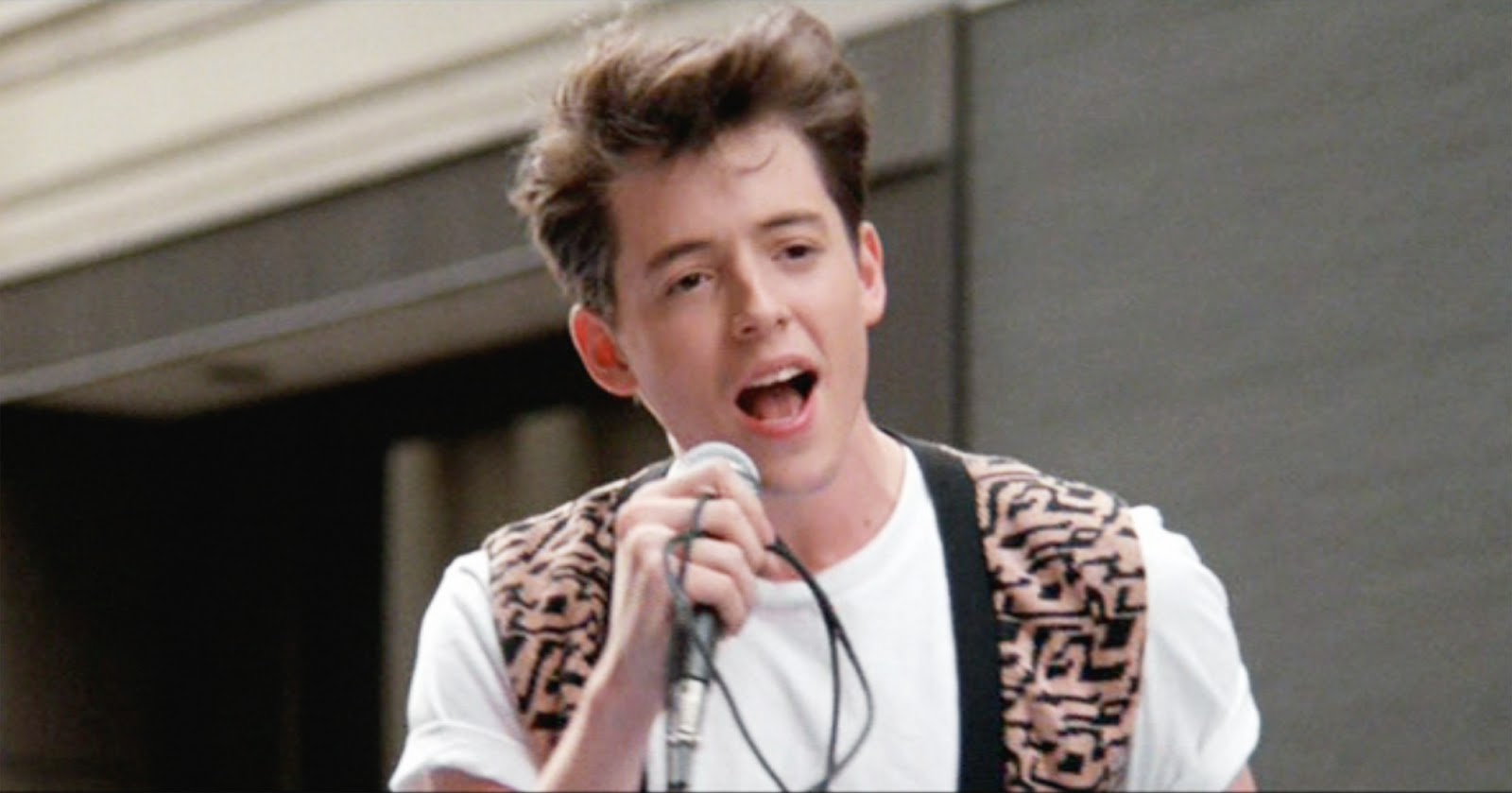
Sometimes it seems to film fans that every American movie is made in (or at least takes place in) NYC, produced by film companies based out of LA.
Even with so many movies dick riding on New York and LA, every once-in-a-while the off brand megalopolis of Chicago busts out its crop of home grown working class cinematic John’s: Belushi, Hughes and Cusack, gets working with its broad shouldered movie mojo, and yeah, that shit works on you.
With that sawbuck folded into your palm every time you shake a cop’s hand spirit in mind, here are the 25 most Chicago movies to ever come bubbling up from the depths of Lake Michigan and get fished out of the smelt frosted chop.
What it truly means to be “from Chicago” is often an issue with Chicago area natives who greet each other in the ausland.
The exchange often goes something like this: “Oh, are you from Chicago, what part? Mundelein?” The Iowa farm kid who’s been living in a dorm room on the DePaul campus for a semester-and-a-half starts to look just a little too smug “That’s a suburb. Move to real Chicago, Suburbs.” says Iowa farm kid as he tips out the door.
Here’s the thing, there are 6 million people living in the suburbs and 2.8 million living in Chicago proper. The suburbs financially nurture the city like an egg white nourishes a yolk. Once you get past the McHenry county line you’ve left one big Chicago organism behind you. A movie that takes place in Lake Forest is as righteously Chicago as a film set entirely in the late Mayor Richard Daley the First’s Bridgeport living room.
The ancient Spartan’s looked down their nose at their suburbanites and it led to their down fall. Don’t make the same mistake, Chicago.
In the egalitarian spirit of a town that both elected Harold Washington to become one of the first African-American mayors of major American city and hit Martin Luther King Jr in the head with a brick during a peaceful protest, here are 25 insanely Chicago movies, in no particular Chicago order.
1. She’s Having A Baby (1988)

Hughes de facto film autobiography. Kevin Bacon plays “Jake” a college drop out who has married his high school sweet heart (Sensible Irish Catholic chanteuse ,Elizabeth McGovern) works at an advertising agency down in the Loop (Hughes started his career working at a Chicago advertising firm) and fights and broods against the onset of adulthood.
The title is misleading, McGovern doesn’t whelp until the film’s final act. Hughes, arguably history’s highest paid college radio dee jay, scores rides home on the Metra commuter rail to soaring Love and Rockets jams and let’s the titular new born coast into existence on the crest of Kate Bush’s gothic new wave howler “This Woman’s Work.”
Hughes employs many imaginative set pieces to tell his story, like an office set which literally shrinks in size, enveloping Bacon in a soulless, corporate womb. Though ultimately Hughes blunts the impact of said set pieces by not trusting his audience’s intelligence enough to not hammer home an explanation of the scene with a Bacon voice over “So why did I feel like the walls were closing in?”
The mystery French girl that Jake (probably) meets with in the shadow of the T-Rex skeleton at the Field Museum is somehow not Julie Delpy.
2. Sixteen Candles (1984)
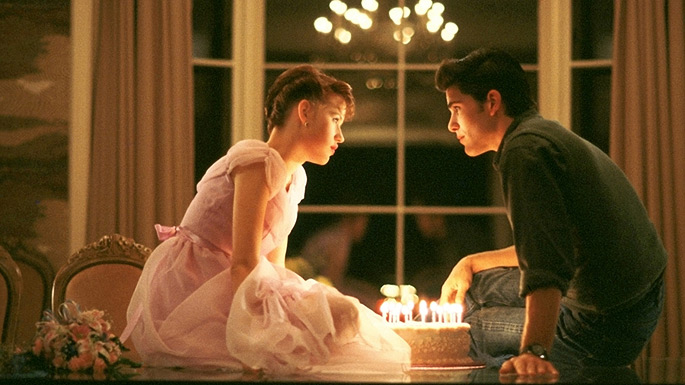
Hughes was to high schoolers in the North Suburbs of Chicago during the ’80’s as Woody Allen is to the New York upper class intelligentsia during every freakin’ decade. At times it almost seemed as though Hughes had been hired as the decade’s official North Shore videographer.
Hughes had found success writing films such as Vacation and Mr. Mom but this film marks both Hughes directorial debut, his first collaboration with the actress Hughes considered his muse, Molly Ringwald, as well as being the first epistle in Hughes’ teen movie canon.
3. Thief (1981)
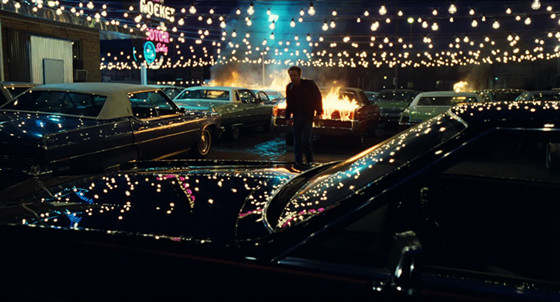
Michael Mann is a cinematic poet who speaks a language almost entirely comprised of shots of cityscapes as seen by night.
The 1995 film, Heat, is Mann’s masterpiece but 1981’s Thief is Mann’s directorial debut and when the filmmaker’s distinct vision begins to come into its own.
James Caan plays a career criminal. Willie Nelson plays Caan’s dying jailhouse mentor. Chicago blues man and songwriter extraordinaire, Willie Dixon, makes a cameo (check out the back cover of just about any classic ‘Stones or ‘Zep side and you’ll see a Dixon songwriting credit. As Cedric the Entertainer as Dixon justifiably brags in the 2008 Chess records biopic, Cadillac Records, “I got paid!”)
Tangerine Dream music drips from the Chicago Skyline, seeps from out of the streetlights along Lake Shore Drive and into the Lake and all is right with the world.
4. Brian’s Song (1971)
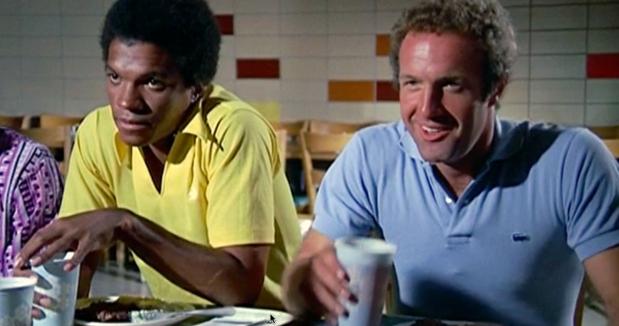
As much as you can make a chick flick starring James Caan and Billie Dee Williams as professional football running backs and roommates embroiled in a doomed interracial bromance, that’s exactly what happened here.
There’s a strong temptation to place this film even higher up the list as it’s the only movie in this posse to feature a cameo from HOF Chicago Bear linebacker and Chicago Catholic League prep star, Dick Butkus.
He doesn’t do anything particularly Butkus-y when he appears on screen. no finger banging an opponent’s eye socket, no icy breath suspended in grid iron eternity, but DB’s mere presence makes this film drip exquisite Chicago-ness like gyro lamb meat roasting on a rotating stand up spit.
5. Hoop Dreams (1994)
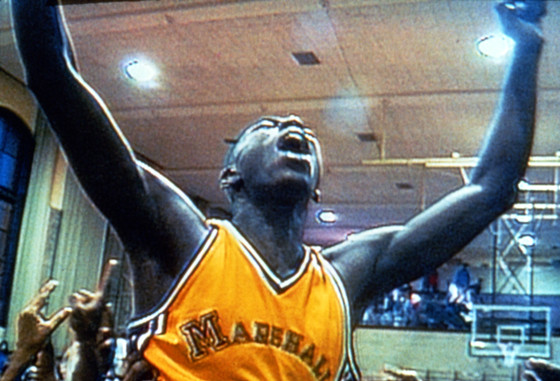
Thanks to the ‘Jordan Bulls, Chicago was the basketball capitol of Planet Earth during the ’90’s and the late Chicago Tribune film critic Gene Siskel, himself a hoops super fan, was famously smitten with this little basketball documentary that could.
Shot sporadically over the course of 5 years and clocking in at damn near 3 hours, this film chronicling the lives of two basketball prep stars from the South Side of Chicago and their families took a tremendous commitment from the pair that created the film, Director Steve James and Producer Frederick Marx, as well as demanding an almost Shoah-risque commitment from its audience.
Both Siskel and Ebert, the respective deans of populist film criticism during the latter part of the 20th Century considered this documentary to be the greatest filmic achievement of 1994.
6. I, Robot (2004)
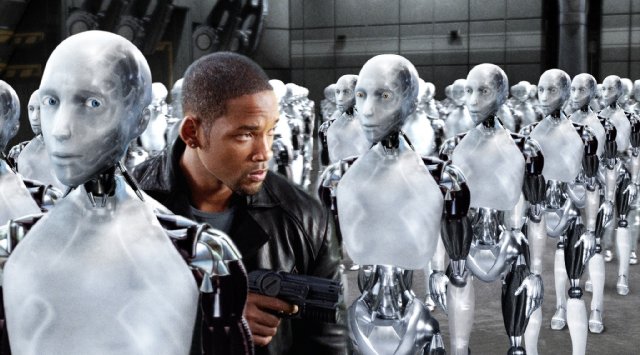
Someday, not too far into the future, Lake Michigan is going to be a dry lakebed/robot junkyard that serves as the cradle of a robot revolt against humanity.
One can’t help thinking that future historians are going to look back and ask themselves “How the fuck did they know that?”
7. High Fidelity (2000)
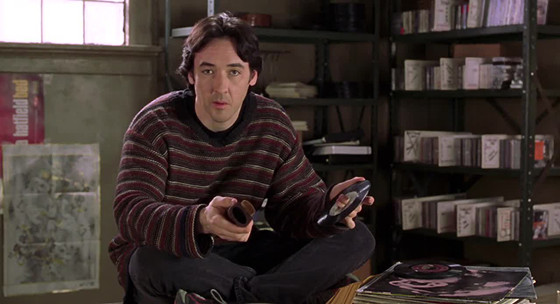
Director Stephen Frears chose Chicago as the location for his film adaptation of Nick Hornby’s novel about a London based record store at least in part because Chicago can do a decent impression of a large English city.
Chicago’s far more ancient than Los Angeles, much less of an urban theme park than NYC, and has miles upon miles of tired looking, rain soaked brownstone bungalows that would look right at home in a Monty Python film or on a Led Zeppelin album cover.
The hostile wind driven climate that comes tear-assing inland from Lake Michigan has always been a major driver of the city’s love of music. Just like its sister cities in England, Ireland, Poland or Germany, the rain and bone set cold force Chicagoans to seek indoor fun during the autumn and winter months.
If the rent’s due and you don’t have the coin to pay the cover at a blues club, you hit up Reckless Records and buy an imported 12 inch from Rough Trade to jam while downing Old Style’s in your converted century old cold water flat.
The third best Chicago John: Cusack, plays a mopey prototypical hipster and record store owner who’s closest to happy when locked into a pair of headphones. Jack Black, as Cusack’s employee with a limited issue colored vinyl chip on his shoulder damn near stuffs the movie down his plumber’s crack and walks away with it.
If there’s any Chicago cred bone picking to be done, it’scthat the film’s soundtrack kicks ass but is almost completely devoid of actual Chicago music. No Wax Trax bands, no Jesus Lizard or Big Black, not even any Muddy, Sam, Chaka or Donny Hathaway.
8. Blues Brothers (1980)
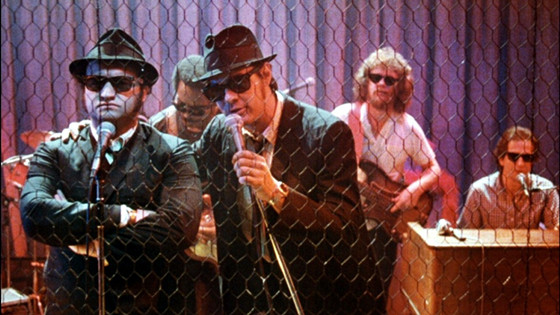
A great film until the third act when director John Landis decided to just shit millions of dollars worth of car chase and crash onto the screen.
Nevertheless, the film’s witty and energetic musical numbers, combine with an avalanche of cameos by blues and soul greats (Ray, James, Aretha) to make for one hell of a Sears Tower sized entertainment.